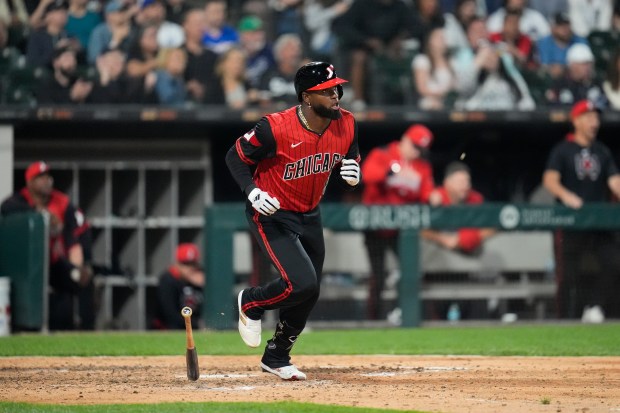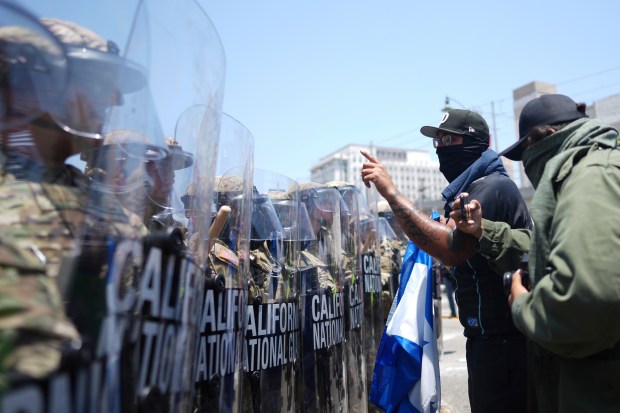Two former Cook County assistant state’s attorneys on Wednesday were acquitted of multiple felony counts following an unusual criminal trial connected to an infamous Chicago wrongful conviction case in the 1982 killings of two on-duty police officers.
Dealing a blow to special prosecutors who spent years investigating and trying the case, Judge Daniel Shanes found Nicholas Trutenko, 69, and Andrew Horvat, 49, not guilty after a bench trial that was halted for nearly a year due to a mid-trial appeal.
The special prosecutors sought to achieve a rare feat in holding government lawyers accountable for wrongdoing they alleged related to a wrongful conviction case, which have become increasingly prevalent in Chicago in recent years. But Shanes, a Lake County judge who heard the case in lieu of the recused Cook County judiciary, ruled they did not meet their burden.
“Everything about this case is unprecedented and extraordinary,” Shanes said, delivering his ruling from the bench at the branch court in northwest suburban Rolling Meadows. “At the same time, it is like any and every criminal case in America.”
The trial, which first began in October 2023, was closely watched by the local legal community and put on display a period of turmoil during former State’s Attorney’s Kim Foxx’s administration.
The proceedings, which wrapped up in December, periodically grew contentious, with lawyers lobbing insults at each other. Other times, witnesses testified for hours on mundane legal arcana.
Though the indictment mostly centers on a 2020 trial for Jackie Wilson, who was later exonerated, the underlying cases span decades, beginning first in 1982 with the shooting deaths of Chicago police Officers William Fahey and Richard O’Brien.
Wilson was tried three times for killing the officers, but his third trial in 2020 imploded when a bizarre friendship was revealed between Trutenko and a key witness against Wilson. Trutenko was the prosecutor on his case in 1989. Horvat, an assistant state’s attorney with the office’s Civil Actions Bureau, represented Trutenko when Wilson’s defense team called Trutenko as a witness.
Wilson’s case, well-known in Chicago, was critical to unveiling systemic practices of torture within the Chicago Police Department. His federal lawsuit against the city is pending, but the Cook County board approved a $17 million payout to Wilson last March.
Jackie and his brother Andrew Wilson were charged and convicted in the officers’ slayings. Jackie Wilson’s verdict was later overturned, and he was retried in 1989 by Trutenko. Jackie Wilson, 21 at the time of the shooting, has said that he didn’t know his brother was going to shoot the officers while the two were in a car together.
During the 1989 trial, Trutenko called to the stand William Coleman, a British con man with a long rap sheet who served time at the Cook County Jail with Jackie Wilson. Coleman testified that Wilson had admitted his role in the crime while they were locked up together in the county jail.
Jackie Wilson was convicted, but the conviction was once again overturned and he was tried for a third and final time in 2020, this time by special prosecutors.
As a key witness against Wilson, the special prosecutors say they tried to find him but they believed him to be dead. But Wilson’s attorneys found out that Coleman was not only alive, but was a longtime friend of Trutenko’s. Trutenko even served as godfather for one of his children.
Special prosecutors Lawrence Oliver and David Hoffman have accused Trutenko of concealing his friendship with Coleman, and then lying on the witness stand about whether Coleman came up in pretrial prep sessions with the prosecutors who were trying to find him. The prosecutors contended that the concealment violated Wilson’s rights because it meant his attorneys would not be able to confront an accuser, a fundamental constitutional right.
They accused Horvat of helping further the concealment.
Defense attorneys for the two men, though, have argued that Trutenko simply misspoke on the stand, and Horvat was bound by attorney-client privilege.




